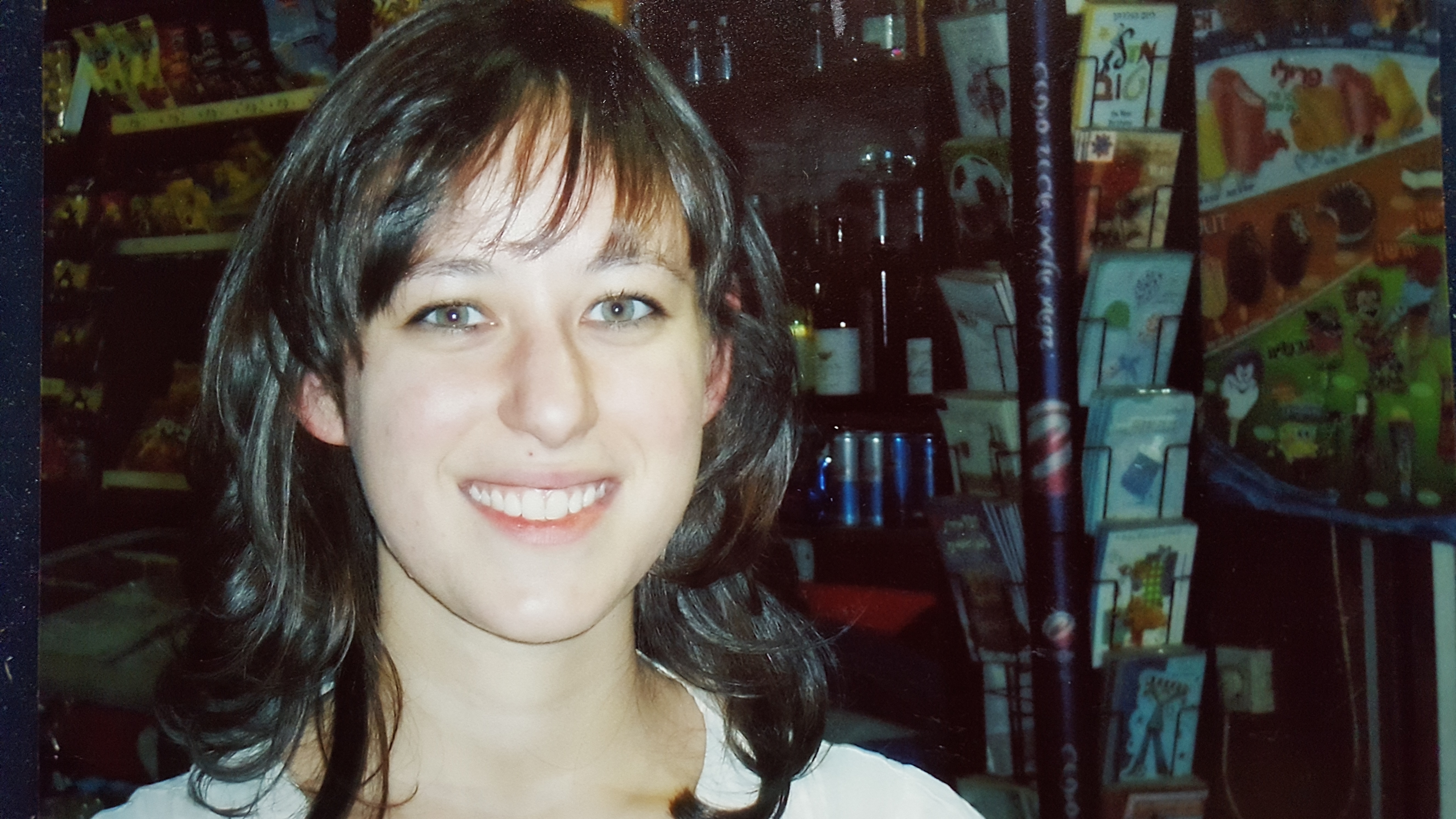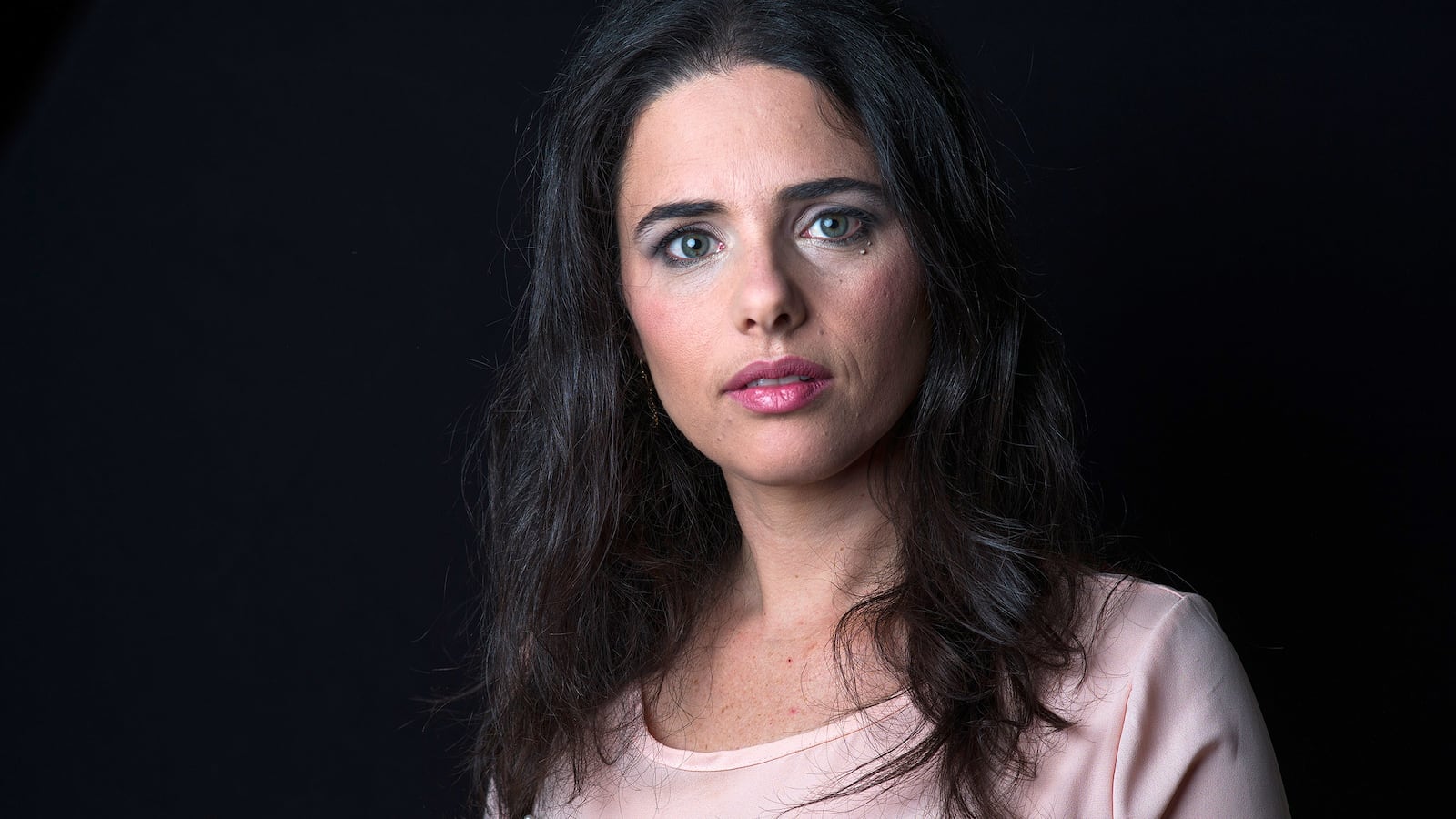JERUSALEM — Ayelet Shaked is a vocal opponent of the Palestinian state. During last summer’s war in Gaza she even shared an infamous piece by another author on Facebook that called Palestinian children “little snakes.” She later tried to walk that back, but her reputation for extremism lives on, and not without cause.
Now she’s Israel’s newly appointed Justice Minister and she plans to put limits on the Supreme Court, believed by many Israelis to be the country’s strongest bastion of democracy.
A 39-year-old mother of two who has a background in high-tech rather than law, Shaked has, along with Jewish Home leader Naftali Bennett, helped to make Jewish extremism palatable to mainstream, especially young, Israelis. Their campaign slogans urged Israelis to stop apologizing for their existence, their wars, and their right to contested land in occupied territories.
Now that they have been brought into the government formed after weeks of delay by Prime Minister Benjamin Netanyahu, one of the biggest obstacles to their program is the independent judiciary.
“The justice system is a foundation of our existence as a democratic society,” declared Shaked at the inauguration ceremony. “I will not be the one to soften its bite. But I will also not allow it to eat away at the legal authority of the legislative and executive branches. We must find the formula for the right balance between the branches.”
That may sound relatively benign, but her incendiary statements, attempts to pass potentially anti-democratic legislation, and harsh criticisms of the Supreme Court have many of her opponents worried that her term may undermine a judicial establishment that has for decades prided itself on keeping the ruling government in check.
Outgoing Justice Minister Tsipi Livni referred to “deep ideological differences” posed by Shaked, which are in contrast to the secular-liberal traditions of the Supreme Court.
“I hope that one thing happens: that with her increasing familiarity with the legal system and the law, she will understand the importance of these apparatuses to the State of Israel; and the quicker she understands them, we, as an opposition, will have less of a need to stand as a wall to defend them,” Livni told Army Radio.
Shaked’s appointment was among the most controversial of multiple last-ditch concessions made by Prime Minister Netanyahu to the Jewish Home party. In the last stretch before the May 6 midnight deadline to form a government, Netanyahu managed to cobble together one of the most conservative, pro-religious, and pro-settler coalitions in the country’s history.
And while Shaked’s Jewish Home and Netanyahu’s Likud have clashed over political and personal disputes, the two parties share a common antagonism toward the Supreme Court.
As chairwoman of the Ministerial Commission for Legislation, Shaked will have the power to set its agenda and influence legislation. Many expect one of her top priorities to be a law she previously backed that would allow the Knesset to override court decisions. Assuming that the slim coalition does not collapse, moreover, Shaked will contribute to the appointment of incoming justices and the next attorney general, who heads the public prosecution system.
If she recommends candidates based on her personal agenda, she may nullify the very purpose of those positions, which is to defend the courts from political attack and prevent the arbitrary use of power, says Moshe Negbi, the legal analyst at Israel Radio.
“This is not a healthy situation, and could mean that the government would be above the law,” he says.
With Netanyahu’s definitively right-wing victory in the March elections, “many people think, and Ayelet Shaked also in good faith thinks, that because she was chosen by the majority, the courts need to obey her,” says Negbi. “What she doesn’t understand is that democracy also fights against the tyranny of the majority, which is only possible with a judicial system and an attorney general which are independent—it’s the ‘black hole’ of our democracy.”
While the Supreme Court’s justices do not engage with the Knesset or the public over political issues, its president, Miriam Naor, broke form last month in response to a right-wing campaign to curb the institution’s power.
At a conference for human dignity in Jerusalem, she championed the Supreme Court as “the last barrier preventing harm to human dignity and other basic rights,” and added that, “it is one of the reasons Israel is seen as a member of the family of democratic nations.”
Although Shaked as an elected official will be hindered by public opinion, critics say that she may still try to reintroduce previously drafted legislation that would work to subdue external criticism of the government and entrench her nationalist values. These include a bill to restrict international donations to NGOs, as well as the so-called “nation-state” bill that classifies the country as Jewish, and therein alienates Israel’s 20 percent Arab minority.
Shaked’s appointment is, many say, part of an unfolding chapter in Israel’s identity crisis, with the country sharply divided on whether it can, or should, be both Jewish and democratic.
“If the Supreme Court is hurt, it hurts Israeli society and its entire moral fabric,” says Tally Kritzman-Amir, a senior lecturer at the College of Law and Business.
She explains that the Israeli Supreme Court has an essential role in protecting the rights of minorities who are not sufficiently represented in the Knesset, from African asylum seekers (or “infiltrators,” according to Shaked) to Ethiopian Israelis to gay couples.
For the past two years, the Supreme Court has repeatedly struck down policies brought forth by Shaked and other right-wing Knesset members that sought to detain hundreds of African asylum seekers for up to three years without trial.
And while Kritzman-Amir says that the “Supreme Court activism tends to stop at the Green Line,” many fear that Shaked—who has called for annexing parts of the West Bank land, which Palestinians see as part of their future state—may promote official support of Israel’s multibillion-dollar settler project, which is largely considered illegal under international law.
And with the peace process and the “land for peace” scheme completely absent from the coalition’s agenda, Malka Weinstock, of the West Bank settlement of Beit El, hopes that Shaked’s appointment will finally deliver “justice” to her friends who were ordered by the Supreme Court to evacuate nearby settlements.
“There were many court decisions based on information that I believe was not true, that says that some grounds belong to someone 50 years ago. So, who cares? I’m living here, I’m raising a family, I have a home,” says Weinstock, referring to the rulings that banned Israelis from building on land belonging to Palestinians. She adds that she believes that Shaked will be able to enact change by legalizing the unofficial Israeli outposts that dot the West Bank.
On Shaked’s ambitions for change, Malka Weinstock and journalist Ido Baum agree.
“This is their ticket—hers and that of the Jewish Home chairman and the next education minister, Naftali Bennett. After all, they don’t apologize, they do,” writes Baum in the left-leaning economic newspaper, The Marker.
“Shaked holds a distorted view of the judicial system and of democracy and she plans to implement her worldview,” writes Baum. “Shaked is coming to the Justice Ministry in order to make a change.”





